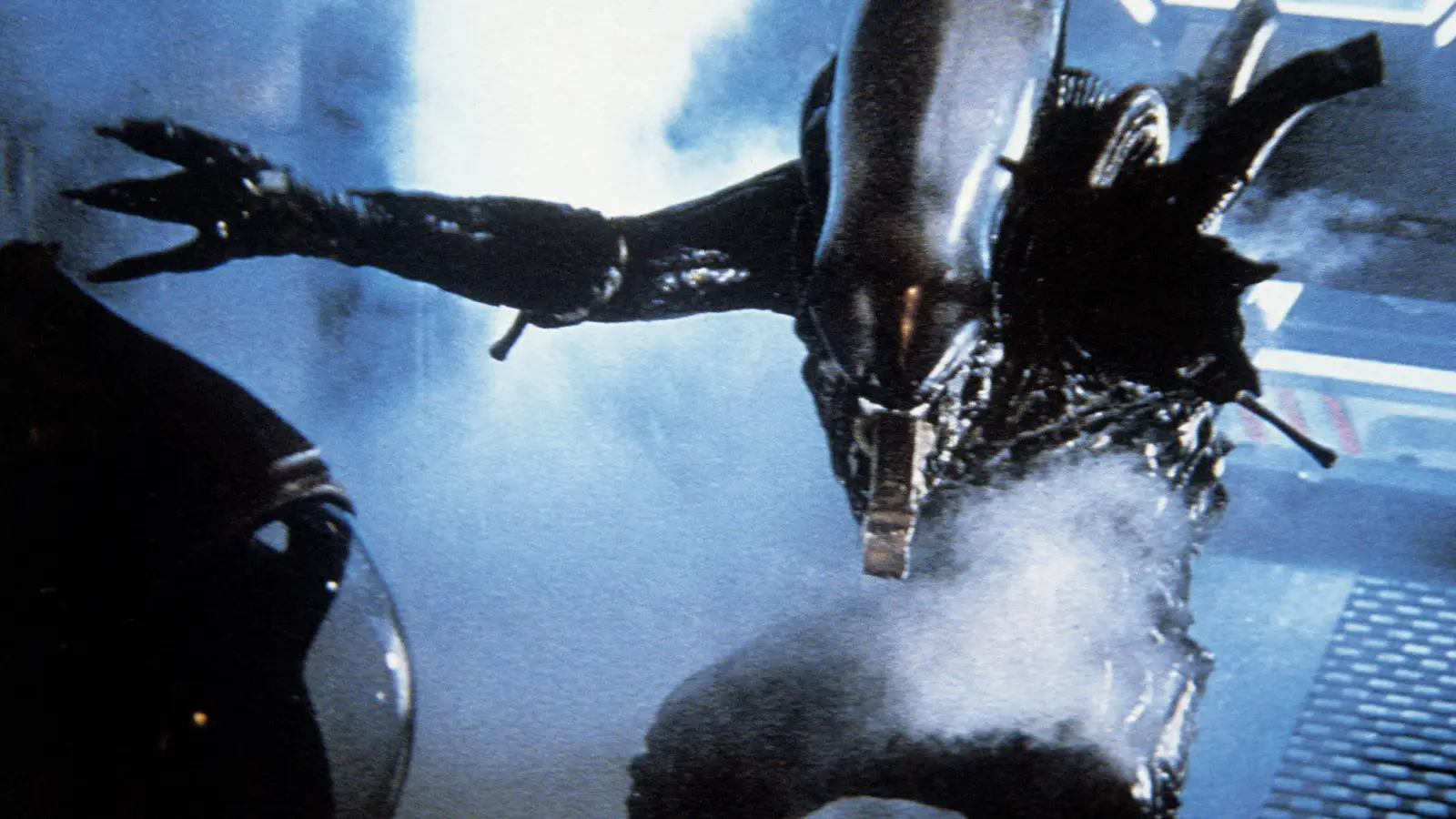
If Alien: Earth gets a second season, FX may want to consider renaming the series Eyeball Monster: Earth. The terrifying new extraterrestrial species — classified as Trypanohyncha Ocellus by the show’s in-universe scientists, and nicknamed the “Eye Midge” by its cast and crew — has stolen the hearts of Xenomorph fans around the world thanks to its eerily adorable design and even eerier implication that it could be hyper-intelligent.
Alien: Earth season 1 doesn’t get around to explaining just how smart the eyeball monster really is before its cliffhanger ending kicks in, but showrunner Noah Hawley tells Polygon that the answer may lie in a scrapped plot twist from director Ridley Scott’s original Alien. In early versions of the 1979 film, Scott would have revealed the Xenomorph to be a highly intelligent creature as well.
Ahead of Alien: Earth’s season 1 finale, Polygon caught up with Hawley to break down some of the show’s most interesting moments, along with his thoughts on where the series is headed next. Check out the highlights below.
Ed. note: Minor spoilers for Alien: Earth season 1 below.
On the origins (and intelligence) of the eyeball monster
“I had this interesting conversation with Ridley Scott early on,” Hawley says when asked about the intelligence levels of Trypanohyncha Ocellus.
In that conversation, Scott explained an abandoned idea for how Alien could have ended. In the alternate conclusion, the Xenomorph kills Ellen Ripley in the escape pod (instead of the other way around). The creature then proceeds to turn on the ship’s radio and send a message back to headquarters while perfectly imitating Ripley’s voice.
Of course, none of this happened, but the story helped inspire the creation of Alien: Earth’s eyeball monster.
“I think Ridley Scott made the right choice not to do that,” Hawley says, “but in telling me that he did sort of indicate an idea for the super intelligence of this creature.”
It’s this intelligence that makes the Trypanohyncha Ocellus so terrifying.
“What’s scary about this creature, other than the fact that it pops your eye out and takes over your mind, is that we begin to worry that it has a level of intelligence that isn’t just an animal hunting, that there could be a larger agenda, problem-solving strategy going on there,” Hawley says. “We’ve yet to see how it reproduces. We don’t know what a bunch of Eye Midges together would do to the world. The real fear of an invasion of these creatures is a really terrifying thought.”
On Timothy Olyphant’s cryptic performance
Alien: Earth is full of fascinating characters, along with some boring ones (looking at you Lost Boys), but arguably the most intriguing of the bunch is Kirsh, the platinum blonde robot played by Timothy Olyphant.
Olyphant plays Kirsh with a sense of bemused detachment that can feel off-putting at times. Even for a robot, this guy is a blank slate, which makes it fascinating to watch him navigate complex situations as Alien: Earth’s story devolves into violent chaos in its final episodes.
Hawley says that he largely just let Olyphant follow his own instincts, but he did offer one critical piece of acting advice that helps explain the enigmatic character:
Tim’s not a big process guy. He doesn’t really want to talk through it. He wants to try things and be and be guided. And I didn’t mess with it. He was doing a great job. But I did suggest to him early on to think about his interactions, especially with Boy Kavalier.
There’s probably a prime directive that he’s not allowed to hurt anybody, and especially not his boss. He may even have a directive that he’s not really allowed to contradict or argue with his boss, or make his boss look bad in front of other people. So in the moments where he’s convinced that his boss is wrong, he’s not really allowed to say it. So what is his reaction in the moment where a person would become angry? He’s more programmed to smile; to sort of grin and bear it.
This creates tension because it’s a weird choice. I mean, there’s a whole movie, Smile, based on the idea that when people smile in the wrong context, it’s creepy. So I do think that makes him harder to read, because his reactions seem so out of step with what the moment calls for.
On future Alien: Earth seasons butting up against the movies
Alien: Earth is set in the year 2120, just two years before Alien. That leaves Hawley with plenty of timeline to play around in for now, but if his show keeps getting renewed, he may eventually have to overlap with the original film.
The showrunner admits that this wasn’t a huge concern while working on season 1, which was more focused on simply establishing the world of Alien: Earth than plotting its future.
“I thought about it to some degree,” Hawley says. “The first season of a show is a proof of concept. If you get a pickup for season 2, then you have to think about season 3.”
That said, he’s already thinking about how the story could eventually resolve and what he’s “building toward,” but plotting out exactly how Alien: Earth may eventually overlap with the original movie remains a problem for another day.
“With a pickup and success, I think one of my first action items is certainly to now look at those first two movies a little more as landmarks on a map that I have to navigate,” Hawley says.
On Alien: Earth and capitalism
While preparing for my interview with Hawley, I dug through FX’s Alien: Earth press materials and found a map, which shows how five fictional companies have divided up the world by the year 2120. The most interesting part of the map is that some of the corporations, like Threshold and Lynch, have never been mentioned before in Alien: Earth or any other Alien story.
When I ask Hawley about it, he describes the map as “an exercise of futurism” and hints that these fictional companies may play a more important role in future seasons of Alien: Earth.
“There’s definitely more we have had to think through in terms of how the larger mythology works, that certainly, if we get to expand the story, we’re going to address,” he says.
There is an inherent gravitational pull toward monopoly that I feel is the end product of capitalism.
Then, he offers a hint at where the series may be headed while drawing a dark connection to the modern entertainment industry.
“We’re even seeing it in Hollywood,” Hawley says. “How many media companies are we going to end up with? There is an inherent gravitational pull toward monopoly that I feel is the end product of capitalism. There’s five companies now [in Alien: Earth], but how many will there be? We’ve only ever heard of the Weyland- Yutani corporation. So if they’re the only one, how did they end up the only one?”



